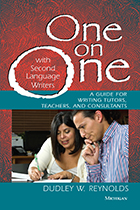4 start with O start with O

At a time of debate about the future of “English” as a discipline and the fundamental methods of literary study, few terms appear more frequently than “close reading,” now widely regarded as the core practice of literary study. But what exactly is close reading, and where did it come from? Here John Guillory, author of the acclaimed Professing Criticism, takes up two puzzles. First, why did the New Critics—who supposedly made close reading central to literary study—so seldom use the term? And second, why have scholars not been better able to define close reading?
For Guillory, these puzzles are intertwined. The literary critics of the interwar period, he argues, weren’t aiming to devise a method of reading at all. These critics were most urgently concerned with establishing the judgment of literature on more rigorous grounds than previously obtained in criticism. Guillory understands close reading as a technique, a particular kind of methodical procedure that can be described but not prescribed, and that is transmitted largely by demonstration and imitation.
Guillory’s short book will be essential reading for all college teachers of literature. An annotated bibliography, curated by Scott Newstok, provides a guide to key documents in the history of close reading along with valuable suggestions for further research.

One-on-one encounters with writers often contribute more to the development of student writing abilities than any classroom activity because they are personalized and responsive to individual needs. For the encounters to be successful, the writing tutor, teacher, or consultant must be prepared, must be knowledgeable of what it means to write and the factors that make writing more and less effective, and must also know the students.
This guide focuses on what those who conference with second language writers need to know to respond best to students, recognize their needs, and steer conversations in productive directions. One on One with Second Language Writers provides tips about activities that can be adapted to individual contexts, student writing samples that can be analyzed for practice, a glossary, a list of useful resources, and a checklist for conferencing sessions.
The book is appropriate for use in university and secondary school writing or learning centers, teacher training programs for both general composition and ESOL instructors, and as an individual reference tool. The book uses non-technical language where possible, but terminology is introduced where it might be useful when conferencing with students.

A new approach to training and evaluating world languages online instructors
The rapid growth in online world language programs in the United States coupled with the widespread implementation of virtual teaching in response to COVID-19 have pushed the field to reconceive instruction. Virtual learning creates unique challenges for instructors, who need to ensure that their students have adequate interaction with their peers, their professor, and native speakers of the language. Even with a growing demand for online language courses, there are few tools that evaluate the training and assessment of online language instructors.
In Online World Language Instruction Training and Assessment, authors Carmen King Ramírez, Barbara A. Lafford, and James E. Wermers fill that gap, providing a critical pedagogical approach to computer-assisted language learning (CALL) teacher education (CTE). By combining best CTE training and evaluation practices with assessment tools, the authors explain how teachers can integrate technology to build successful online programs. Their ecological, holistic approach addresses all facets of learning online—including pressing challenges of moving courses online, teacher training, developing core competencies and skills, instructions for assessment and self-evaluation, goal setting, and the normalization of critical CTE practices in an increasingly digital environment.
The authors propose new solutions to teacher training challenges, providing extensive rubrics and tools that can equitably assess online language instructor skills, the training they receive, the assessment process they undergo, and the instruments used for instructor assessment. A list of CALL and CTE resources (available on the Press’s website) further supports readers’ successful adaptation to an everchanging learning environment.

When The Other Tongue appeared in 1982, it was called "required reading for all those concerned with English teaching in non-native situations, from the classroom teacher to the policy planner", Jowhn Platt, English World-Wide) and "an extremely useful and stimulating collection" (William C. Ritchie, Language). It introduced refreshingly new perspectives for understanding the spread and functions of English around the world.
This dramatically revised volume contains eight new chapters, replacing or updating more than half of the first edition. The Other Tongue is the first attempt to integrate and address provocative issues relevant to a deeper understanding of the forms and functions of English within different sociolinguistic, cross-cultural, and cross-linguistic contexts. The volume discusses linguistic, literary, pedagogical, and attitudinal issues related to world Englishes.
READERS
Browse our collection.
PUBLISHERS
See BiblioVault's publisher services.
STUDENT SERVICES
Files for college accessibility offices.
UChicago Accessibility Resources
home | accessibility | search | about | contact us
BiblioVault ® 2001 - 2024
The University of Chicago Press









